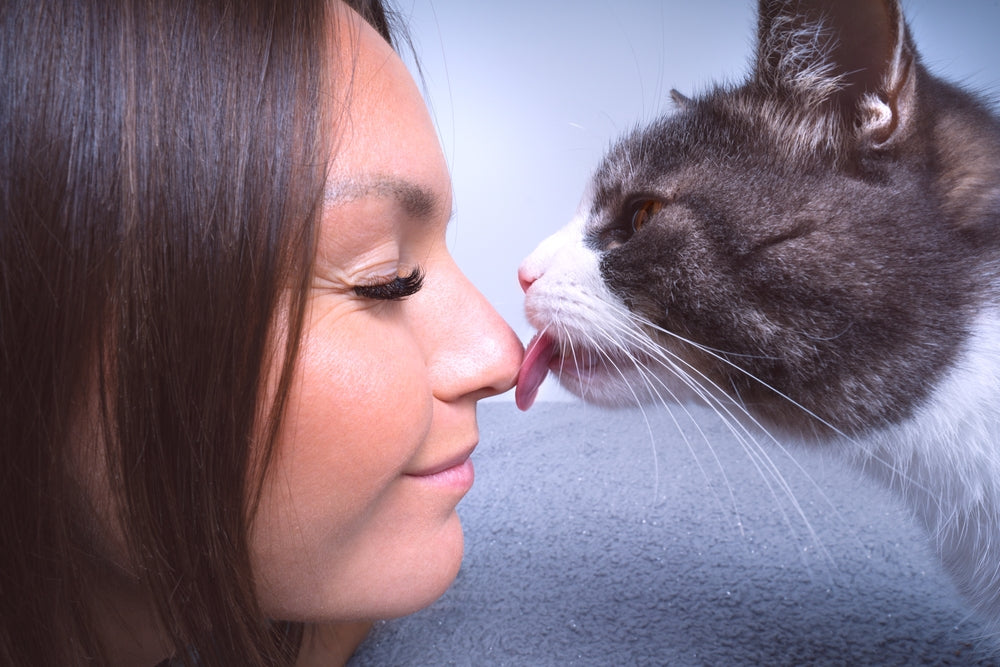
When considering a pet, cleanliness is often a major factor. Cats, known for their independent and meticulous nature, are frequently touted as clean animals. But how accurate is this perception? Are cats clean animals to have at home? In this article, we'll explore the natural grooming habits of cats, the benefits of keeping them as indoor pets, and how to maintain a clean environment when living with a feline friend.
Natural Grooming Habits
How Cats Stay Clean
Are cats dirty? Not at all. In fact, cats are naturally inclined to keep themselves clean. From a young age, they learn the art of grooming from their mothers. Using their tongues, which are equipped with tiny, hook-like structures called papillae, cats lick their fur to remove dirt, parasites, and loose hair. This behavior isn't just about cleanliness; it's also a form of self-soothing and temperature regulation. Given their meticulous grooming habits, you might wonder, "How often should you bathe a cat?" Generally, cats do an excellent job of keeping themselves clean, and frequent baths are usually unnecessary.
The Role of a Cat's Tongue
A cat's tongue is an incredible grooming tool. The papillae on their tongues act like a comb, detangling fur and removing debris. You'll often see cats lick their paws and use them to clean hard-to-reach areas like their faces and behind their ears. This self-grooming behavior is instinctual and begins when they are kittens. How often do cats groom themselves? Most cats spend a significant portion of their day grooming, with some estimates suggesting they dedicate up to 50% of their waking hours to this task.
Benefits of Indoor Cats
Clean and Independent Pets
Cats' grooming habits make them excellent indoor pets. Their self-sufficient nature means they require less hands-on grooming from their owners compared to other pets like dogs. Indoor living further enhances a cat's cleanliness. Without exposure to outdoor elements, cats are less likely to pick up dirt, pests, and allergens, making them easier to care for.
Health Advantages Indoors
Indoor cats typically enjoy longer, healthier lives—allowing you to fully experience the health benefits of having a cat. They avoid many hazards of the outdoors, such as traffic, predators, and diseases. Keeping a cat indoors also means fewer worries about fleas, ticks, and other parasites, contributing to a cleaner and healthier home environment. Additionally, indoor cats are less prone to getting into substances that could soil their fur or lead to excessive grooming.
Addressing Cleanliness Concerns
Debunking Myths
Despite their natural grooming habits, some misconceptions persist about cats being dirty. One common myth is that cats can make a home smell bad. In reality, a well-maintained litter box and regular cleaning routines can keep odors at bay. Another concern is cat allergies, which are often triggered by proteins in cat saliva and dander rather than their fur itself. Regular grooming and cleaning can help minimize these allergens.
Managing Litter Box Odors
Managing a cat's litter box is key to maintaining a clean home. Choose a high-quality cat litter that effectively controls odor and is easy to scoop. Clean the litter box daily and change the litter regularly to prevent the buildup of waste and odor. Placing the litter box in a well-ventilated area can also help. For cat owners, understanding the importance of a clean litter box helps promote a hygienic living space for both the cat and the household.
Keeping a Clean Home with PrettyLitter
Importance of a Clean Litter Box
Keeping the litter box clean is central to both your cat's health and the cleanliness of your home. A clean litter box encourages your cat to use it regularly, reducing the risk of accidents and associated odors. It also helps you monitor your cat's health, as changes in their litter box habits can be an early indicator of health issues.
PrettyLitter’s Health Benefits
PrettyLitter offers a solution for maintaining a clean and healthy home. Our color-changing formula provides an early warning system for potential health issues, such as urinary tract infections or kidney problems. By monitoring the color changes, you can catch potential health problems early and seek veterinary care if needed. PrettyLitter also has advanced odor control, ensuring your home remains fresh and clean, making it a perfect choice for cat owners who prioritize cleanliness.
Final Thoughts on Cats and Cleanliness
Understanding how clean cats are involves recognizing and appreciating their natural grooming habits, the benefits of keeping them as indoor pets, and how to maintain a clean environment. Cats are inherently clean creatures, spending a significant amount of time grooming themselves. Their independent nature and the benefits of indoor living make them excellent pets for those concerned about cleanliness. By managing common concerns such as litter box maintenance and using tools like PrettyLitter, you can maintain a healthy, hygienic home for both you and your feline friend.
Sources:
- ASPCA. Cat Grooming Tips. https://www.aspca.org/pet-care/cat-care/cat-grooming-tips
- Texas A&M Veterinary Medical Teaching Hospital. Cat Grooming Behavior. https://www.texvetpets.org/article/grooming-behavior-of-cats/
- Trivedi, Bijal P. National Geographic. Understanding Cat Tongues: Papillae. www.nationalgeographic.com/animals/article/understanding-cat-tongues-papillae.
- VCA Animal Hospitals. How to Bathe Cats with Medicated Shampoo. https://vcahospitals.com/know-your-pet/how-to-bathe-cats-with-medicated-shampoo


Follow Us